The Shan people have already given up hope that the two warring Shan armies, Restoration Council of Shan State (RCSS) and Shan State Progress Party (SSPP), which both have the same armed wing named as Shan State Army (SSA), would stop fighting, reconcile and serve the people to fulfil their aspirations.
But to their surprise a ceasefire joint-statement issued on November 29 by the two Shan armies was a godsend news which the Shan/Tai people have been waiting for all these years, who have been demoralised particularly in the midst of ongoing Operation 1027 waged by the Three Brotherhood Alliance (3BHA) against the military junta within their territories, without their consent.
However, let us just delve on the ceasefire move first.
Ceasefire Joint-Statement
The ceasefire 3-point joint-statement of November 29 by the two Shan armies SSPP and RCSS writes:
- In accordance with long standing hope and expectation from the Venerable Sangha and the people on unity between the two Shan armed organizations, both sides have been complying with the instruction from two Chairmen directed on 9-10 August 2023 to cease fighting and to refrain from the misuse of media that could affect the unity in the future.
- On 29 November 2023, three representatives from SSPP and four from RCSS held a meeting and agreed to a formal ceasefire.
- In order to inform the Venerable Sangha, the people, commanders and ranks and files from both sides about the formal ceasefire agreement between the two-armed organizations, SSPP and RCSS, we jointly issue this ceasefire statement.
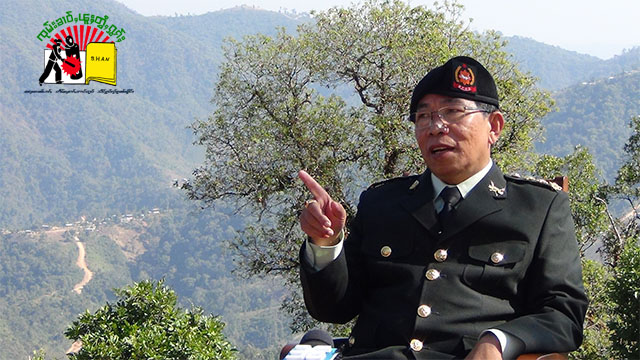
“We discussed about two armies ceasefire and have reached an agreement on it. In order to have agreement we have to discuss three times. This time we are able to agree on the ceasefire (formal agreement),” RCSS Spokesman Maj. Sai Kham Sarm told Shan Herald Agency for News on November 29.
“Both sides want to unify. In order to do that we need to go on with the discussion. The ceasefire now is aimed at the continuation of unification discussion,” he added.
Following the ceasefire both armies cooperation and solution to the armed conflict within Shan State will continue to be discussed, he said.
Besides, both armies prisoners of war and related helpers are to be freed simultaneously, according to the news.
According to Myanmar Now report of November 30, as part of the truce agreement, the two groups said they would exchange prisoners and notify each other of the movements of their members or their families, and also discuss the deployment of their troops and hold bilateral meetings every two months. The two sides last engaged in hostilities in April of this year.
Junta’s spokesperson Zaw Min Tun called it a positive development and said that all parties should join forces to fight the Brotherhood Alliance.
He reportedly have been trying to drive a wedge among the ethnic groups in northern Shan State, when the junta spokesperson accused the 3BHA of occupying the homes of ethnic Shan civilians.
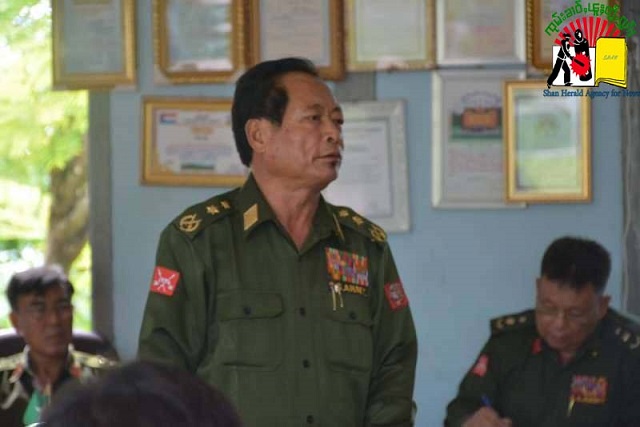
On December 1, Myanmar Now interviewed SSPP Spokesman Maj. Sai Phong Han.
He said the Shan armies ceasefire arrangement didn’t have anything to do with the Three Brotherhood Alliance’s Operation 1027. The negotiation has been going on even before the operation started.
The Operation 1027 included some SSPP controlled areas. But to what extend the areas are covered will only be known when the war in northern Shan State is over, he said.
Right now the SSPP and RCSS are negotiating on demarcation of troops deployment in central Shan State, on which the SSPP has advanced into in the process of pushing RCSS from northern Shan State to southern Shan State. According to him the SSPP proposed to stay in the north of Kholam, Kunhing, Loilem motor road and RCSS in the south of it. But so far nothing has been agreed upon and still needs to negotiate more.
On question of Ta’ang National Liberation Army (TNLA) desire for Palaung or Ta’ang State he didn’t want to give opinion as it has the right to aspire whatever it wants. But whether it will materialise or becoming official is totally another matter, he said. He gave an example that at the start of the revolution the SSPP also aimed for total independence, but has now settled for federal union according to the trend of the day. In his opinion he said basing on religion or ethnic aspiration only is outdated and should instead be based on building of a federal union for the welfare of the all the people, countrywide.
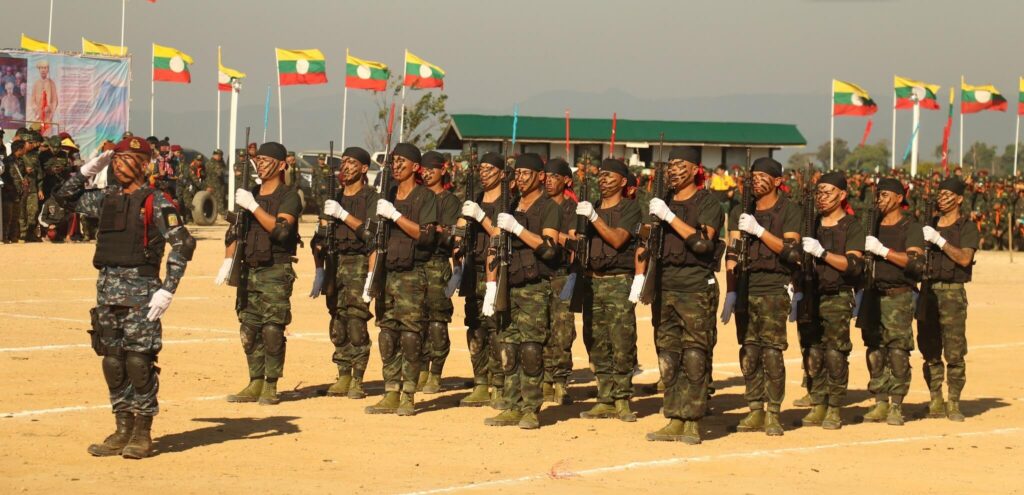
Shan response to ceasefire
Shan response to the two Shan armies ceasefire announcement were overwhelmingly positive. The 28 civil society organizations welcomed it and issued statement endorsing the move.
The six-point statement issued by the civil society organisations on November 29 writes:
- It is a blessing to witness the joint-statement of ceasefire agreement of SSPP and RCSS.
- The Shan civil society organisations heartily endorsed the statement.
- The whole Shan people is overjoyed for the ceasefire agreement of the two Shan armies, which originated from the Shan public.
- At this point in time when military and political conflict are heightening, the unity of two Shan armies to protect the Shan public is most important.
- We believe that the ceasefire will pave way to protect the Shan people, unity and basis for the establishment of peaceful, federated Shan State.
- Therefore, according to the whole Shan public desire the two Shan armies are earnestly urged to continue materialising cooperation and unity-building through the recent ceasefire agreement.
Hundreds of social media users from Shan communities also welcomed the ceasefire agreement of the two Shan armies, including Sai Aik Pao Chairman of Shan and Nationalities Development Party and hoped that they become one for the benefit of the Shan people and able to protect them. He added that this will be also for the good of the whole union, not only for the Shan.
SSPP issues statement on Shan to return home
On the heels of this development, SSPP urged Shan diasporas, refugees and IDPs to return issuing an appeal statement on December 1.
SSPP appeals to the Shan/Tai, who have fled their homesteads and become either refugees in neighbouring countries or IDPs locally, to return. It said it would do everything in its power to help the returnees.
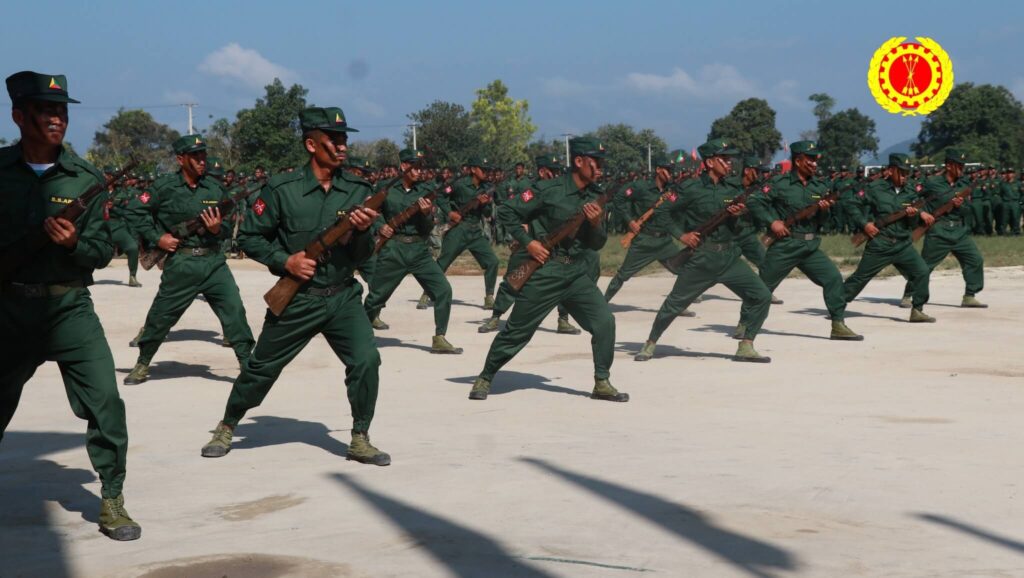
For those who have a brush with the law will be dealt with leniency upon returning to settle back, the statement said.
Because of the exodus for various reasons the towns and villages are now deserted and its time that the Shan/Tai rehabilitate them again so that others won’t settle in to make them their own, which will be a tremendous loss for the Shan nation.
All should return, to forge unity and rebuild the society to be better than the past urged the statement.
Perspective
The Shans have been enduring this frustration and feeling of being disparaged ever since the two Shan armies were at each others throats starting 2018. In 2015 the RCSS intruded into areas claimed by the SSPP and TNLA in northern Shan State, but in 2021 it was pushed back with overwhelming firepower by their combined forces, aided by the United Wa State Army (UWSA). It is believed that China also wanted the RCSS out of northern Shan State and gave indirect orders to expel its troops from that territory.
Due to the southward expansion of the SSPP, some areas in central Shan State are disputable between the itself and the RCSS. Let’s hope that this can be settled without armed confrontation again.
However, there is no guarantee that the ceasefire will hold or it will develop into a better cooperation between the two armies as wished for by the majority of the Shan people. But one thing is sure the falling back into confrontation mode will be a disservice for both Shan armies and also for the Shan people.
If this is so, they should disregard the animosity developed all through these years by being at each others throats and start to do some earnest soul-searching, so that they won’t fall back into conflict mode again.
First, it should be understood that unity, or at the least working in cooperation and coordination, to serve the Shan people should be the utmost priority. After all both armies have continuously vowed to serve the people and not just bogged down in territorial expansion, absurd ideological conflict, group survival mentality and last but not least, the personal rivalry of the leaders.
Second, the two Shan armies need to cash in, in the wake of the heightening revolutionary tide, just like the Kachin Independence Organization (KIO) and Karenni National Progressive Party (KNPP) are doing right now.
Third, the thinking that the junta can offer the Shan some political benefit at least in the form of Wa Self-Administered Division status without interference in the administration matters won’t happen, with its waning political and military clout, including lack of legitimacy to rule.
Fourth, both armies should try to breathe new live again into Committee for Shan State Unity (CSSU) Manifesto and give more space to Shan political parties, civil society organizations, and representatives of the people, as it has a broad vision of forging Shan/Tai unity, non-Shan ethnic brethren unity within Shan State, and unity of all ethnic nationalities countrywide, which is the ultimate way to go.
Fifth, try to make the SSPP proposal of rehabilitation of deserted, abandoned towns and villages in central Shan State, due to the military junta’s four-cuts operations in 1990s where thousand have abandoned their homesteads, a joint venture between the two Shan armies, including all stakeholders within Shan State.
Finally, encourage democratic principles if possible within the Shan armies, rather than warlordism ways of doing things. In other words, collective leadership and collective decision-making, with general consensus.
Hopefully, the two Shan armies will consider some of the broad vision mentioned and be able to serve the Shan people, all citizens of Shan State and also other ethnic nationalities countrywide.





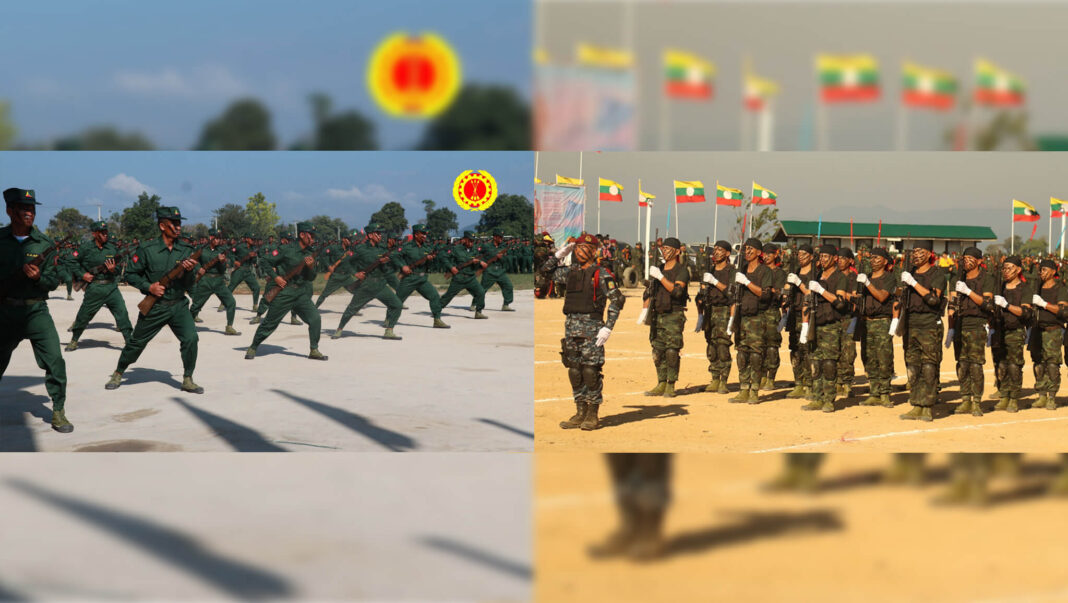
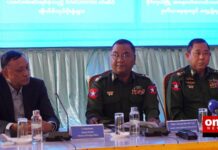

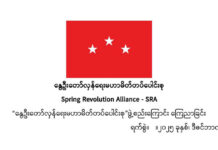
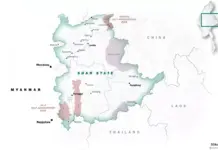
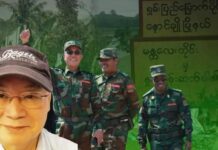




Leave a Comments